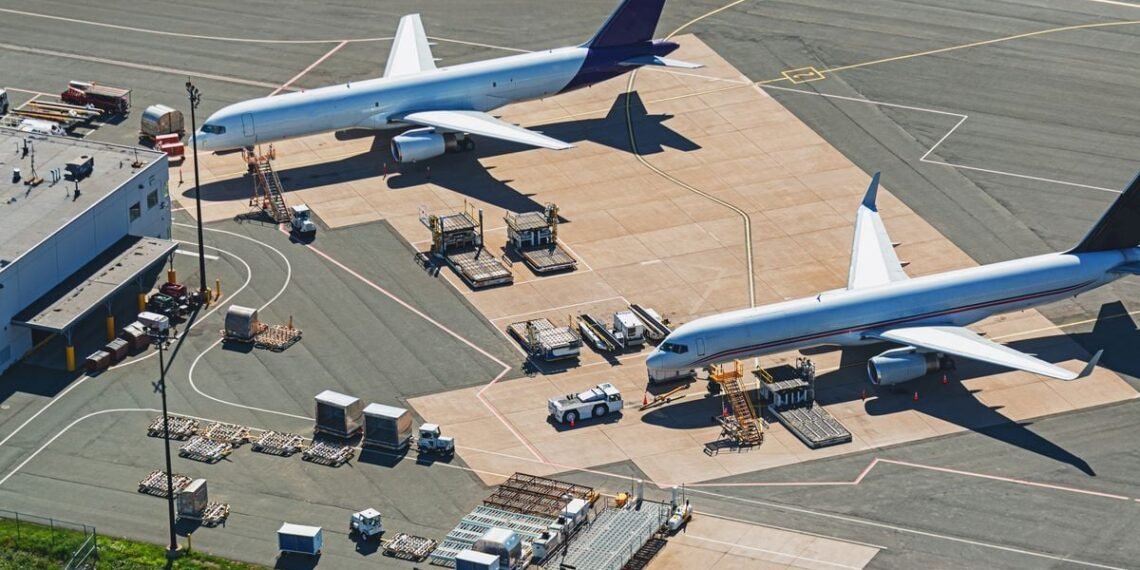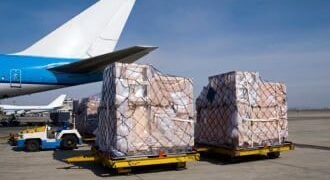Air freight deliveries at highest levels since 2012 amid ‘cooling’ cargo market
Global air cargo volumes are forecast to decline 4 per cent year-on-year in 2023, after an 8 per cent drop this year, amid challenging economic headwinds, the International Air Transport Association (Iata) said. Cargo volume will decrease to 57.7 million tonnes next year, down from 60.3 million tonnes this year, as the market cools down after strong periods of growth during the Covid-19 pandemic, Iata said in its latest forecast on Wednesday.
“This primarily reflects the more challenging global economic backdrop both in terms of global economic growth but also in terms of international trade,” Andrew Matters, head of economic analysis and policy at Iata, said in Geneva. “We’re also expecting to see that yields are going to unwind in 2023.”
Cargo yields will drop 22.6 per cent next year, following a rise of 7.2 per cent this year, according to Iata’s forecasts. This is a slowdown from the highs of 52 per cent growth in yields in 2020 and 24 per cent last year during the Covid-19 pandemic.
“We don’t think that’s sustainable,” Mr Matters said. “A 22 per cent [decline] sounds pretty dramatic but … you can see it doesn’t look too unreasonable at all and the reason for that, of course, is the very strong increases we’ve seen in recent years. The unwind we’re seeing follows those three pretty strong years of yield increases.” With lower yield and volume, cargo revenue is also forecast to decline.
Cargo revenue is expected to reach $149.4 billion next year, down from $201.4 billion this year, but this is still about 50 per cent higher than its pre-pandemic levels, Iata says. Cargo’s share of the total revenue of airlines is therefore also expected to decline. The cargo business’ share of total revenue peaked at 40 per cent last year, which will ease to 28 per cent this year and drop further next year to 19 per cent, Mr Matters said. This is due to the decline in cargo revenue and the simultaneous increase in passenger revenue, he said.
“We think the air cargo market is cooling after what has been a very strong and very unusual period for the market and we expect that this is going to continue into 2023,” Mr Matters said. “It’s not all bad news, a lot of it is just coming back from unsustainably high levels.”
Freighter deliveries
At the same time as air cargo demand is moderating, freighter deliveries to airlines are reaching peak levels. The rolling two-year average of freighter deliveries is at its highest point since 2012, Mr Matters said. This additional freighter capacity, along with the ongoing recovery in belly capacity as airlines return more passenger jets into service, will pressure cargo yields, he said.
Gulf airlines such as Emirates and Qatar Airways have recently invested in freighter orders to expand their cargo fleet. However, there is always a lag between the ordering and delivery of aircraft and the long-term outlook for cargo is a “much more positive story”, Mr Matters said.
“Airlines that are putting in orders now, by the time they take delivery of those aircraft, we could well be in that period of upswing where volumes have picked up, so the timing could be spot on,” he said. “The long-term outlook is more positive for air cargo than what we’re looking at for 2023.”
Upside risks to the outlook
Despite the softening freight market indicators for next year, the upside risks to the air cargo outlook are “not insignificant”, Mr Matters said. For example, if the Russia-Ukraine war was resolved soon, then business and consumer confidence would rebound “quite quickly”, leading to a recovery in economic activity, consumer spending, business investment and international trade — all of which would be positive for the air cargo market going forward, he said. Continued global supply chain disruption may adversely affect the shipping industry and present an opportunity for air cargo growth as businesses try to plug the gaps in their inventory, he said.
E-commerce growth
The air cargo sector is also expected to continue to benefit from e-commerce demand that boomed during the pandemic when people were shopping online due to lockdown measures. The value of e-commerce globally is expected to reach $5.7 trillion this year and $7.3 trillion in 2025, Brendan Sullivan, Iata’s global head of cargo.
Online retail sales globally have reached 21 per cent this year and even with the drop in consumer spending overall, are forecast to continue to grow overall, he said. This translates to 159 billion parcels sent this year, about four times more than eight years ago. The number of parcels sent in 2014 was 143 billion and this will nearly double by 2027 to 260 billion parcels, Mr Sullivan added.
About 80 per cent of cross-border e-commerce is shipped by air, showing that air cargo is built to support e-commerce demand, he said. About 18-20 percent of air cargo is e-commerce, according to Iata.






